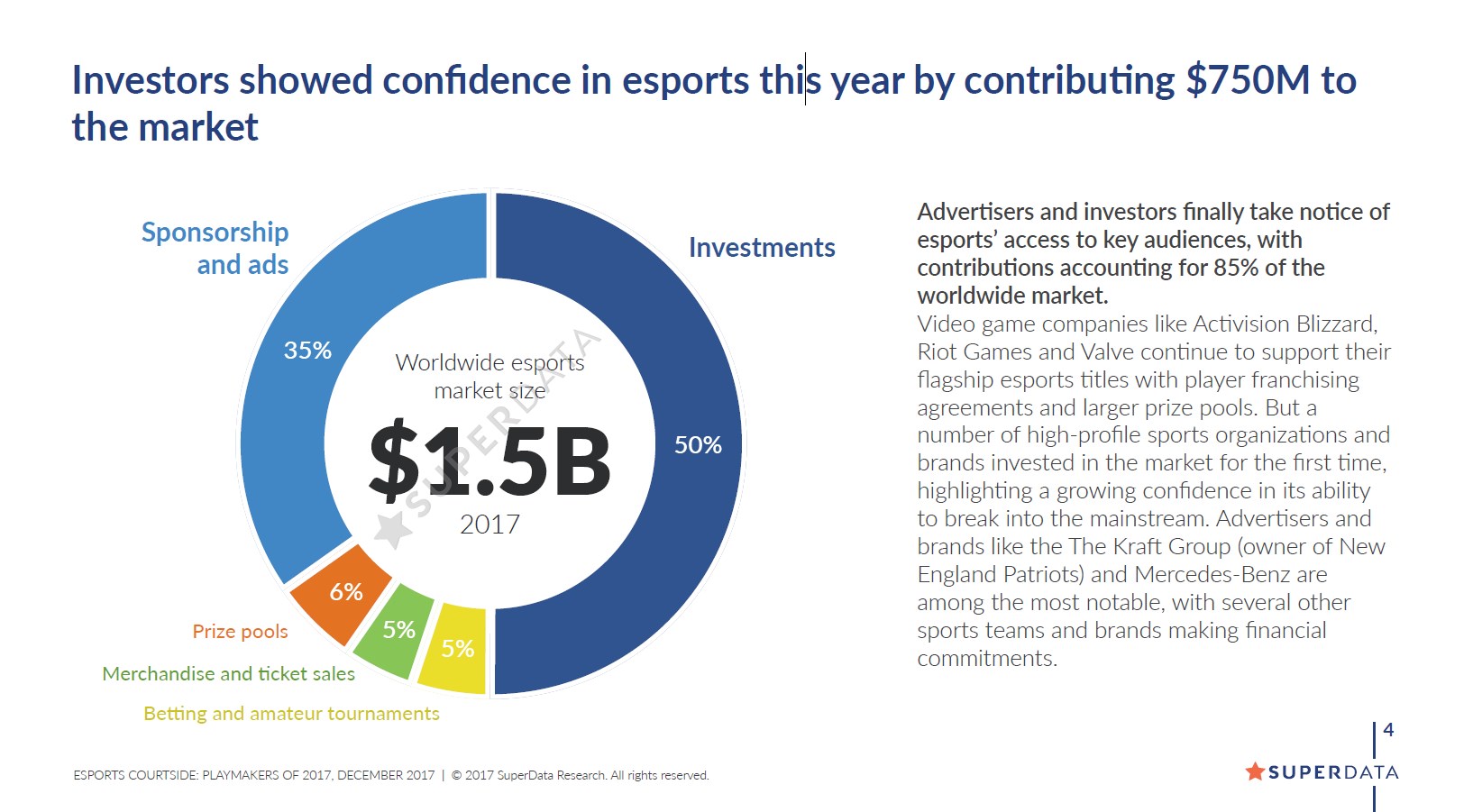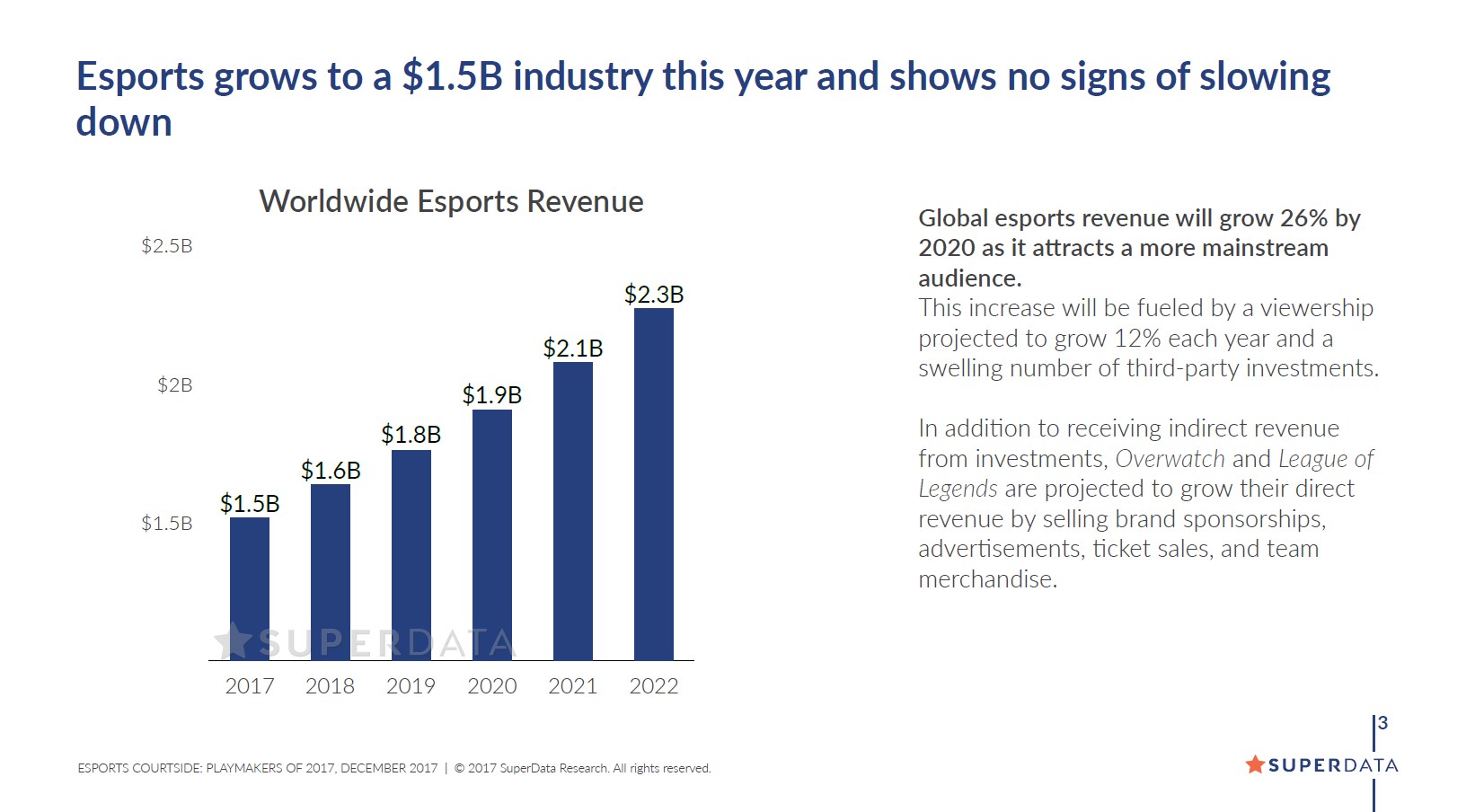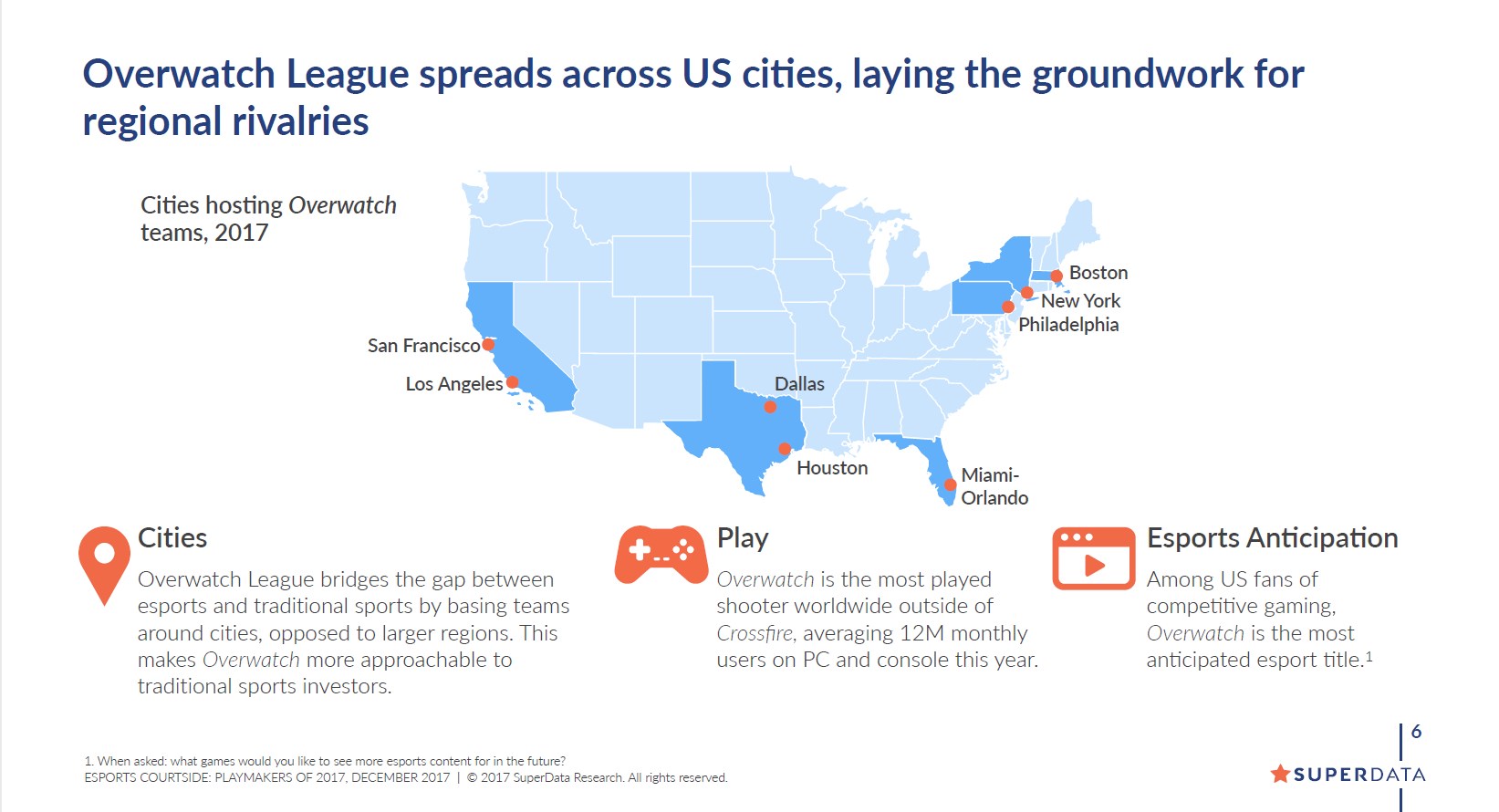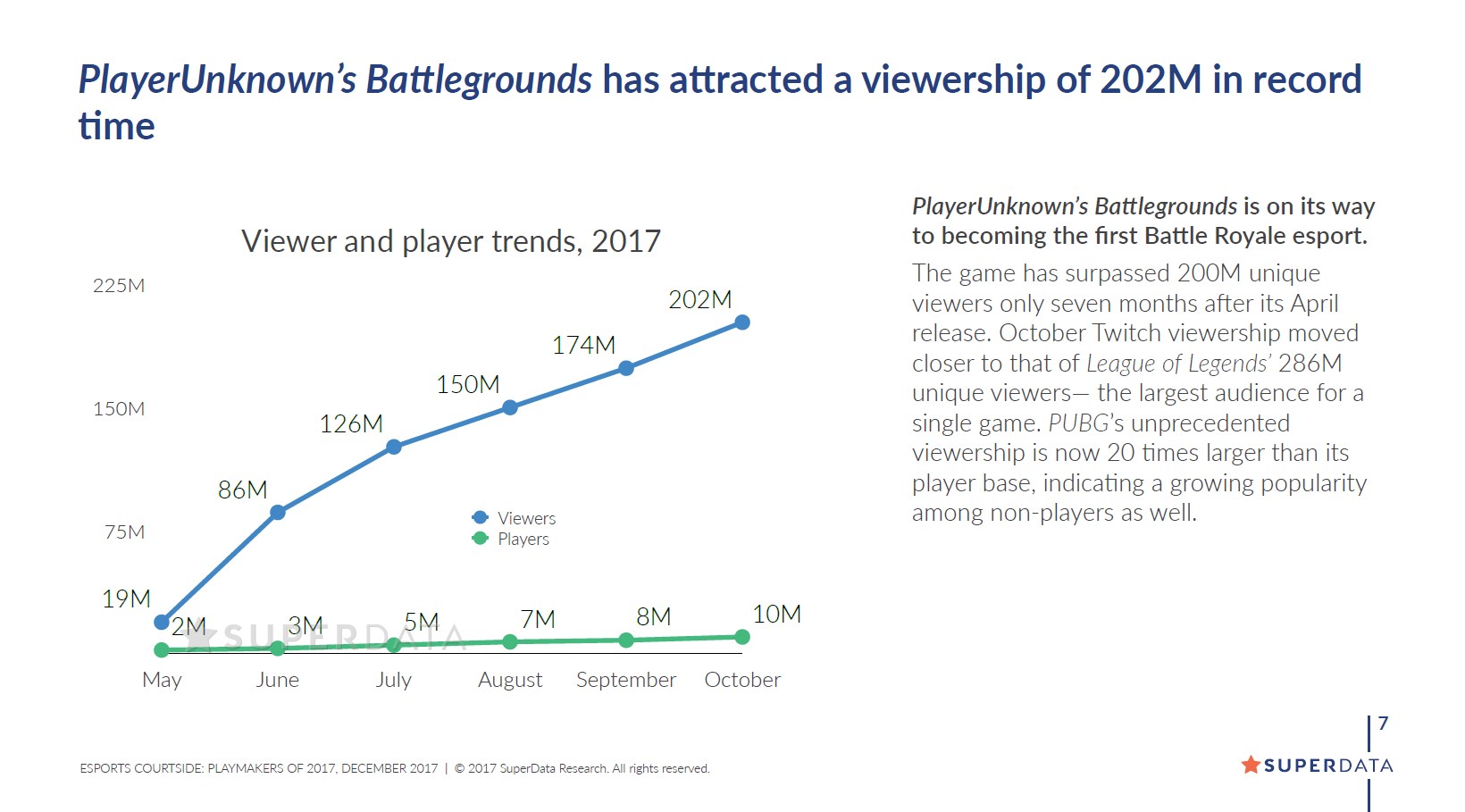Esports was worth $1.5 billion in 2017
Analyst firm Superdata predicts strong growth to continue, citing the Overwatch League and PUBG as the prime movers.

A new report from digital research firm Superdata says that the worldwide esports market was valued at $1.5 billion in 2017. Fully half of that came by way of investments from "high-profile sports organizations and brands," the company said in the Esports Courtside: Playmakers of 2017 report, "highlighting a growing confidence in its ability to break into the mainstream."
"Once only large in core Asian markets like Korea, esports have expanded worldwide and are now top of mind of every publisher, platform, and brand," Superdata wrote. "At $1.5 billion for 2017, global esports revenue will grow 26 percent by 2020 as it attracts an even more mainstream audience. This increase will be fueled by a viewership projected to grow 12 percent each year and a swelling number of third-party investments."
The report notes the success of crowdfunding in esports, seen primarily in the hefty prize pools put together for Dota 2 and League of Legends, but the really big money is in direct revenues, such as franchise fees, sponsorships, and merchandise sales, which are also predicted to grow.
The Overwatch League, despite what appeared to be early struggles to get off the ground, gets special mention for having teams based in cities, which "bridges the gap between esports and traditional sports," the report says. "This makes Overwatch more approachable to traditional sports investors."

At the same time, the report also suggests that there's plenty of room for the opposite approach to esports success, as typified by Playerunknown's Battlegrounds, which got its own nod for breaking 200 million unique viewers in just seven months.
"PUBG's unprecedented viewership is now 20 times larger than its player base, indicating a growing popularity among non-players as well," the report says. "Overwatch League opens the floodgates for a new kind of esports governance, and PlayerUnknown’s Battlegrounds rides a wave of esports performance with no formal strategy."
As for the people who watch esports, they still prefer Twitch to YouTube, although not by a very large margin, and the vast majority of esports viewers in the US watch both: Twitch for livestreams, and YouTube for "more curated content."
Keep up to date with the most important stories and the best deals, as picked by the PC Gamer team.



Andy has been gaming on PCs from the very beginning, starting as a youngster with text adventures and primitive action games on a cassette-based TRS80. From there he graduated to the glory days of Sierra Online adventures and Microprose sims, ran a local BBS, learned how to build PCs, and developed a longstanding love of RPGs, immersive sims, and shooters. He began writing videogame news in 2007 for The Escapist and somehow managed to avoid getting fired until 2014, when he joined the storied ranks of PC Gamer. He covers all aspects of the industry, from new game announcements and patch notes to legal disputes, Twitch beefs, esports, and Henry Cavill. Lots of Henry Cavill.

